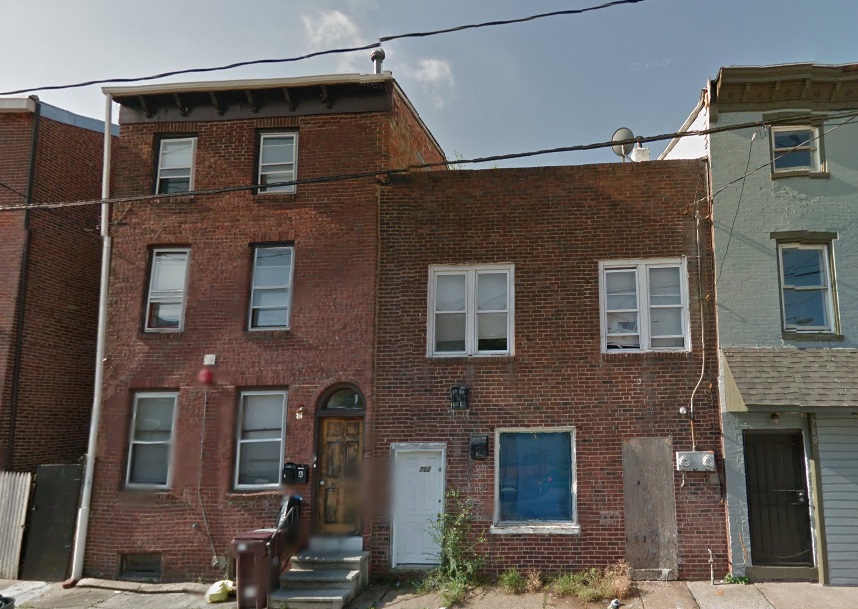
Wilmington – Yesterday New Castle County Councilman David L. Tackett, with the strong support of County Executive Matthew Meyer, introduced legislation that gives County government new authority to tackle vacant and abandoned housing County Councilman across New Castle County, according to New Castle County Communications Director, Jason Miller.
Miller said vacant and abandoned homes become breeding grounds for crime, are targets for arson and become a health and safety hazard for their surrounding communities. These properties also drive costs to county taxpayers, diverting public safety resources and force local government to pay for basic maintenance, grass mowing, collection of trash and address illegal dumping activity. Additionally, vacant and abandoned housing has been shown to depress neighborhood property values and reduce tax revenues that fund critical public services.
In 2014, New Castle County Council adopted an ordinance that recognizes the negative impact of vacant and abandoned properties on their surrounding communities and the burden these properties place on county government. It established a registry of vacant properties, required that parties responsible for each vacant property initiate a registration, and imposed a registration fee to offset the County’s inspection and monitoring costs. To-date, however, only a few hundred properties have been registered, mostly bank-owned properties moving through the foreclosure process. Meanwhile, County government has identified more than 1,300 vacant and abandoned premises in unincorporated New Castle County that are being monitored and/or maintained by the County.
“This proposed legislation is another leg in the journey to reduce the blight of unmaintained vacant properties throughout our community,” said Councilman Tackett. “Moving forwarded, I will explore and implement the best practices possible to continue to combat this negative effect on our quality of live.”
“Vacant and abandoned homes attract crime, drive down property values and drive up expenses for county government,” County Executive Matthew Meyer said. “I strongly support Councilman Tackett’s common-sense legislation that gives County government additional tools to strengthen our communities and improve the quality of life.”
Councilman Tackett’s legislation takes several steps to more fully offset the County’s costs for monitoring and maintaining vacant properties and to ensure full compliance with the vacant housing registry, including:
· establishing a process that allows the County to register vacant premises if the party responsible for the property fails to register
· imposing an additional $1,000 fee for properties not voluntarily registered by their responsible party/owner
· requiring annual registration every year the property remains vacant.
· increasing annual registration fees the longer a property remains vacant
· adding a provision that enables the County to file unpaid charges, fees and penalties as a tax lien
Councilman Tackett’s legislation builds on several recent efforts undertaken by County government to combat vacant and abandoned properties. These include:
· A Vacant Housing Working Group was established last year to bring key stakeholders together to develop strategies for reducing vacant, abandoned and blighted properties. It consists of representatives from the County Executive’s Office, County Council, County departments of Public Safety, Community Services (Housing), Land Use (code enforcement), Finance, Law and Administrative Services (Geographic Information System), along with the Attorney General’s Office and the New Castle County Sheriff’s Office.
· The Department of Community Services has secured two grants from the Delaware State Housing Authority to tackle vacant, abandoned and blighted properties and created the ReVaMP program to provide forgivable down payment and settlement assistance loans to qualified homebuyers who purchased a vacant home in targeted areas across the County.
· The Department of Land Use developed a working list of vacant properties most in need of maintenance and has initiated demolitions and emergency repairs.
Yesterday’s proposed ordinance defines a vacant premise as any building intended for residential or commercial use which is not currently occupied or in use wherein no person or persons actually, currently conduct a lawful business or lawfully reside or live in any part of the building as the legal or equitable owner(s) or tenant-occupant(s) or tenant(s) on a permanent, non-transient basis or that is unoccupied. Evidence offered to prove that a building is vacant may include, but shall not be limited to: accumulation of mail, advertising flyers, or other materials delivered to or posted upon the property or premises; disconnection of telephone, electric, gas, heating, water or sewer services; overdue sewer service charges or property taxes; one or more property maintenance violations issued against the property address within one-hundred-twenty days preceding the issuance of a violation notice finding vacancy; absence of vehicles on the property with current registrations; absence of evidence of occupancy upon visual inspection or upon information provided by proximate property owners or tenants of proximate property.

